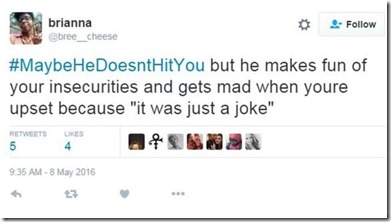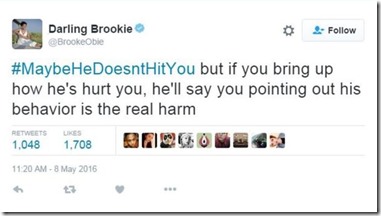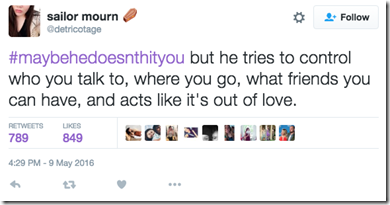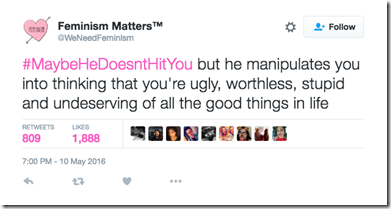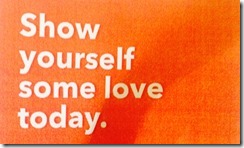Last year I helped facilitate programs on healthy relationships for adults with developmental disabilities. Even though I was the one teaching, I felt like I was learning all these healthy relationship lessons for the first time too.
Over the past year, I’ve come quite a long way in terms of what I deserve and how I deserve to be treated by the people I surround myself with. That program helped me get there and that got me thinking that we need to talk about healthy relationships more. We need to have a dialogue on what is and what isn’t okay.
From my experience, the best place to start is to have an idea of what is and isn’t okay, what you deserve (ex. respect) and what you don’t (ex. being treated like crap).
Here are some things that you deserve in a relationship (any kind of relationship):
1) Someone who makes an effort
If you’re always texting someone first or always the only one to really put in effort to spend time together, walk away and find people who are genuinely excited about being around you. This seems straightforward but sometimes it can be easy to want to keep trying to cultivate a friendship or relationship, when in reality, the other person might not always feel the same way. Relationships should always be somewhat even and both people should be mutually excited to spend time together and build a connection.
2) A partner who doesn’t take up too much space
I feel like we’ve all met or spent significant time with a person who doesn’t leave much room for you in a conversation or validate your feelings and opinions. If someone is always talking over you or spinning conversations to be all about themselves and their thoughts, it’s typically a sign that your partner doesn’t respect you.
I spent a chunk of high school and part of college really close friends with this guy. We had a lot in common and we spent a lot of time together. Our mutual friends would often think that we would end up together. It seemed to make sense too—but something always stopped me. If I tried to have a deep conversation about something personal, it would become all about him. If I wanted to watch this movies, suddenly we’d be watching a movie he’d picked out even after I said I preferred the other movie. He would also get competitive with me about who had dated more people, who’d gotten better grades, who could run a faster mile.
At the end of the day, I wasn’t given consideration, validation, or respect. It left me feeling small. Big surprise, we’re no longer friends. I got tired of being treated like I didn’t even matter.
For my lady-identifying friends out there, this can be a common trend. We’re taught to be small, to keep quiet, so it might be hard to notice when someone is edging you out but do your best to shut it down because you deserve someone who validates you and your feelings and lets you take up an even amount of space.
Relationships involve two people, so should the conversations you have and the decisions you make.
3) Someone who doesn’t wield things over your head
Did you do something embarrassing one time? Make a mistake? Say the wrong thing? Probably. We all do these things.
Does your partner (or friends, relative, etc.) ever throw it back in your face?
If you said yes, you absolutely deserve better. Like I said, we all have made mistakes, done embarrassing or stupid things, and have private, personal experiences in our past. If you disclose these experiences to a partner and they start using it as a means to discredit you, embarrass you, or otherwise upset you, get out of that relationship ASAP.
If this is a repeating pattern of behavior, you most likely have an emotionally abusive and/or manipulative relationship unfolding.
4) Someone who doesn’t wield your level of (in) experience over your head
This is a semi-extension of previous paragraph, but it is an important conversation to have because I’ve seen this play out a lot in relationships—typically in relationships where one partner has more dating, sexual, or life experience than the other. This is tricky territory but it’s important to navigate.
If your partners shames you, mocks you, judges you, whatever, for the amount of sex you’ve had, people you’ve dated, etc. This is a gigantic red flag that your partner doesn’t respect you and that you genuinely deserve this disrespect simply because of personal choices you have the right to make.
One the other end of the spectrum, if your partner shames you, mocks you, judges you because you haven’t yet had a specific dating or sexual experience, this is also a red flag.
If a partner ever uses this as a means to pressure you to have these experiences or make you feel bad for saying no, that is one very large warning sign that should not be ignored. These kinds of behaviors are absolutely abusive and could very well be a pathway to sexual manipulation or coercion.
5) Someone who builds you up
I want to end on a more positive note than the previous section, so this last bit is all about how your relationships should be a positive one. I am adamantly against the widespread idea that boyfriends, girlfriends, or partners “complete people.” This just makes people without partners feel like they’re missing something or are less valuable and this concept only makes people put up with the horrible behaviors I described above.
However, your partner should absolutely make you feel good and help you grow (just like any non-romantic relationship. Don’t think your partner will complete you or fix flaws or anything, but remember that they should help you learn new things about yourself, offer new ways to look at the world, and encourage you while reminding you that you’re good enough the way you are.
Maybe this sounds difficult to find, but you’re worth it.
All the best,
Christina
